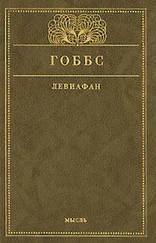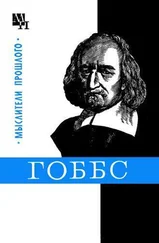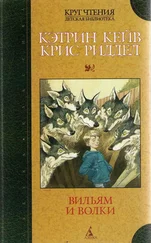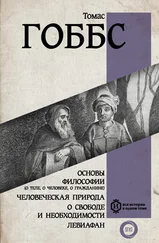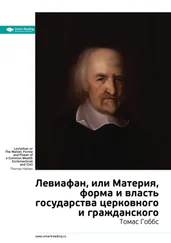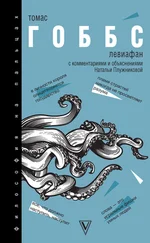Another place is that of 1 Cor. 3. where it is said that they which built Stubble, Hay, etc. on the true Foundation, their work shall perish; but "they themselves shall be saved; but as through Fire:" This Fire, he will have to be the Fire of Purgatory. The words, as I have said before, are an allusion to those of Zach. 13. 9. where he saith, "I will bring the third part through the Fire, and refine them as Silver is refined, and will try them as Gold is tryed;" Which is spoken of the comming of the Messiah in Power and Glory; that is, at the day of Judgment, and Conflagration of the present world; wherein the Elect shall not be consumed, but be refined; that is, depose their erroneous Doctrines, and Traditions, and have them as it were sindged off; and shall afterwards call upon the name of the true God. In like manner, the Apostle saith of them, that holding this Foundation Jesus Is The Christ, shall build thereon some other Doctrines that be erroneous, that they shall not be consumed in that fire which reneweth the world, but shall passe through it to Salvation; but so, as to see, and relinquish their former Errours. The Builders, are the Pastors; the Foundation, that Jesus Is The Christ; the Stubble and Hay, False Consequences Drawn From It Through Ignorance, Or Frailty; the Gold, Silver, and pretious Stones, are their True Doctrines; and their Refining or Purging, the Relinquishing Of Their Errors. In all which there is no colour at all for the burning of Incorporeall, that is to say, Impatible Souls.
Baptisme For The Dead, How Understood
A third place is that of 1 Cor. 15. before mentioned, concerning Baptisme for the Dead: out of which he concludeth, first, that Prayers for the Dead are not unprofitable; and out of that, that there is a Fire of Purgatory: But neither of them rightly. For of many interpretations of the word Baptisme, he approveth this in the first place, that by Baptisme is meant (metaphorically) a Baptisme of Penance; and that men are in this sense Baptized, when they Fast, and Pray, and give Almes: And so Baptisme for the Dead, and Prayer of the Dead, is the same thing. But this is a Metaphor, of which there is no example, neither in the Scripture, nor in any other use of language; and which is also discordant to the harmony, and scope of the Scripture. The word Baptisme is used (Mar. 10. 38. & Luk. 12. 59.) for being Dipped in ones own bloud, as Christ was upon the Cross, and as most of the Apostles were, for giving testimony of him. But it is hard to say, that Prayer, Fasting, and Almes, have any similitude with Dipping. The same is used also Mat. 3. 11. (which seemeth to make somewhat for Purgatory) for a Purging with Fire. But it is evident the Fire and Purging here mentioned, is the same whereof the Prophet Zachary speaketh (chap. 13. v. 9.) "I will bring the third part through the Fire, and will Refine them, etc." And St. Peter after him (1 Epist. 1. 7.) "That the triall of your Faith, which is much more precious than of Gold that perisheth, though it be tryed with fire, might be found unto praise, and honour, and glory at the Appearing of Jesus Christ;" And St. Paul (1 Cor. 3. 13.) The Fire shall trie every mans work of what sort it is." But St. Peter, and St. Paul speak of the Fire that shall be at the Second Appearing of Christ; and the Prophet Zachary of the Day of Judgment: And therefore this place of S. Mat. may be interpreted of the same; and then there will be no necessity of the Fire of Purgatory.
Another interpretation of Baptisme for the Dead, is that which I have before mentioned, which he preferreth to the second place of probability; And thence also he inferreth the utility of Prayer for the Dead. For if after the Resurrection, such as have not heard of Christ, or not beleeved in him, may be received into Christs Kingdome; it is not in vain, after their death, that their friends should pray for them, till they should be risen. But granting that God, at the prayers of the faithfull, may convert unto him some of those that have not heard Christ preached, and consequently cannot have rejected Christ, and that the charity of men in that point, cannot be blamed; yet this concludeth nothing for Purgatory, because to rise from Death to Life, is one thing; to rise from Purgatory to Life is another; and being a rising from Life to Life, from a Life in torments to a Life in joy.
A fourth place is that of Mat. 5. 25. "Agree with thine Adversary quickly, whilest thou art in the way with him, lest at any time the Adversary deliver thee to the Officer, and thou be cast into prison. Verily I say unto thee, thou shalt by no means come out thence, till thou has paid the uttermost farthing." In which Allegory, the Offender is the Sinner; both the Adversary and the Judge is God; the Way is this Life; the Prison is the Grave; the Officer, Death; from which, the sinner shall not rise again to life eternall, but to a second Death, till he have paid the utmost farthing, or Christ pay it for him by his Passion, which is a full Ransome for all manner of sin, as well lesser sins, as greater crimes; both being made by the passion of Christ equally veniall.
The fift place, is that of Matth. 5. 22. "Whosoever is angry with his Brother without a cause, shall be guilty in Judgment. And whosoever shall say to his Brother, RACHA, shall be guilty in the Councel. But whosoever shall say, Thou Foole, shall be guilty to hell fire." From which words he inferreth three sorts of Sins, and three sorts of Punishments; and that none of those sins, but the last, shall be punished with hell fire; and consequently, that after this life, there is punishment of lesser sins in Purgatory. Of which inference, there is no colour in any interpretation that hath yet been given to them: Shall there be a distinction after this life of Courts of Justice, as there was amongst the Jews in our Saviours time, to hear, and determine divers sorts of Crimes; as the Judges, and the Councell? Shall not all Judicature appertain to Christ, and his Apostles? To understand therefore this text, we are not to consider it solitarily, but jointly with the words precedent, and subsequent. Our Saviour in this Chapter interpreteth the Law of Moses; which the Jews thought was then fulfilled, when they had not transgressed the Grammaticall sense thereof, howsoever they had transgressed against the sentence, or meaning of the Legislator. Therefore whereas they thought the Sixth Commandement was not broken, but by Killing a man; nor the Seventh, but when a man lay with a woman, not his wife; our Saviour tells them, the inward Anger of a man against his brother, if it be without just cause, is Homicide: You have heard (saith hee) the Law of Moses, "Thou shalt not Kill," and that "Whosoever shall Kill, shall be condemned before the Judges," or before the Session of the Seventy: But I say unto you, to be Angry with ones Brother without cause; or to say unto him Racha, or Foole, is Homicide, and shall be punished at the day of Judgment, and Session of Christ, and his Apostles, with Hell fire: so that those words were not used to distinguish between divers Crimes, and divers Courts of Justice, and divers Punishments; but to taxe the distinction between sin, and sin, which the Jews drew not from the difference of the Will in Obeying God, but from the difference of their Temporall Courts of Justice; and to shew them that he that had the Will to hurt his Brother, though the effect appear but in Reviling, or not at all, shall be cast into hell fire, by the Judges, and by the Session, which shall be the same, not different Courts at the day of Judgment. This Considered, what can be drawn from this text, to maintain Purgatory, I cannot imagine.
The sixth place is Luke 16. 9. "Make yee friends of the unrighteous Mammon, that when yee faile, they may receive you into Everlasting Tabernacles." This he alledges to prove Invocation of Saints departed. But the sense is plain, That we should make friends with our Riches, of the Poore, and thereby obtain their Prayers whilest they live. "He that giveth to the Poore, lendeth to the Lord. "The seventh is Luke 23. 42. "Lord remember me when thou commest into thy Kingdome:" Therefore, saith hee, there is Remission of sins after this life. But the consequence is not good. Our Saviour then forgave him; and at his comming againe in Glory, will remember to raise him againe to Life Eternall.
Читать дальше

